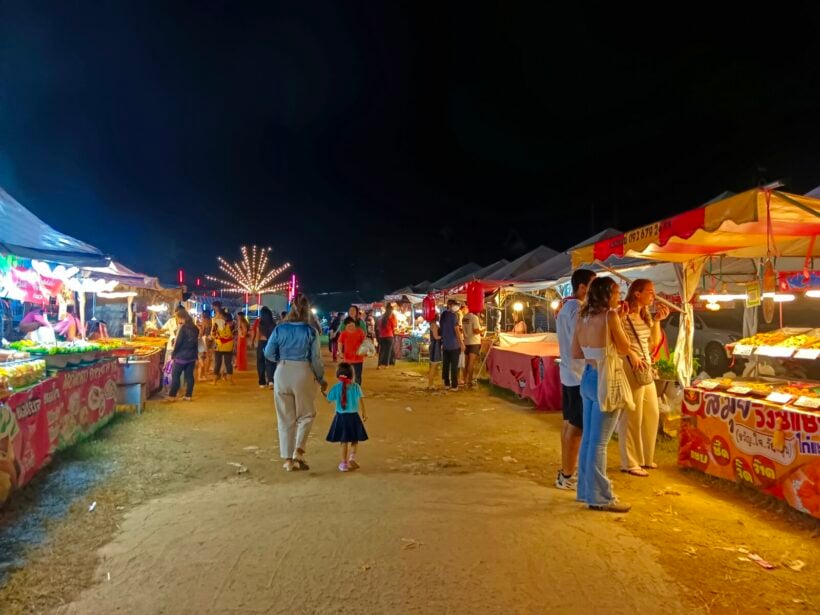Koh Samui’s Moving Market – a hidden local treat

Koh Samui is a welcoming holiday island for tourists worldwide, with beautiful beaches, scenic viewpoints, and many popular attractions. And, like many places in Thailand, local food is also a huge draw. Samui has many daily and weekly night markets and food courts around the island, but perhaps none is more local and more overlooked by tourists than the moving market.
The moving market is just what it sounds like: a night market that changes locations every seven to 10 days all around the island. The organisers plan the next stop or two, but there is no set long-term schedule for when the market will be at what location. But the markets can be spotted by the bright lights hung in patterns at their entrances along the road.

The moving market is finishing up a ten-day stretch next to the closed Bophut night market on the ring road that circles Koh Samui. After that, it will be at Bangrak Temple tucked off the main road, not far from Secret Garden and Big Buddha Pier. It will finish off the year doing the holidays along Chaweng Lake.
The organisers of the moving market don’t just set up a few portable covered stalls to sell cheap food though. They create an experience. The front of the market usually consists of pop-up covered tables and booths selling cheap snack foods and meals – five baht pieces of chicken, 20 baht pad thai, or 10 baht sweets for example.

But behind the food stalls, bigger temporary shops are set up selling everything from clothes to phone accessories, electronics to weapons and items of questionable legality. And yes, there’s usually at least a cooler or two selling cold beers.

But moving deeper into the moving market reveals much more. The market usually hosts a mini-carnival, fun for the whole family. Inflatable slides and climbing structures, trampolines, a shop where kids can paint sculptures, and even carnival midway games like shooting balloons for a prize are set up and moved every week or so. And at the back, a big stage is set up with lighting and sound, where performers sing and dance to Thai music nightly.

Fon Siriyakorn, one of the organisers, told The Thaiger that, while foreigners stop by the market each day, they don’t promote in English at all and don’t see it as something tourists will be interested in. Thai people may be aware of the location and events of the moving market as big-name Thai bands from the mainland perform there frequently and advertise their shows. The majority of foreigners at the markets though were just driving by and stopped to grab a bite.

They may perhaps create an English Facebook page and make the market location and schedule more visible on the day. But for now, Koh Samui’s moving market is a hidden gem for locals and the few lucky tourists and expats who stop for food when they spot the market, wherever it may be.
Latest Thailand News
Follow The Thaiger on Google News:


























